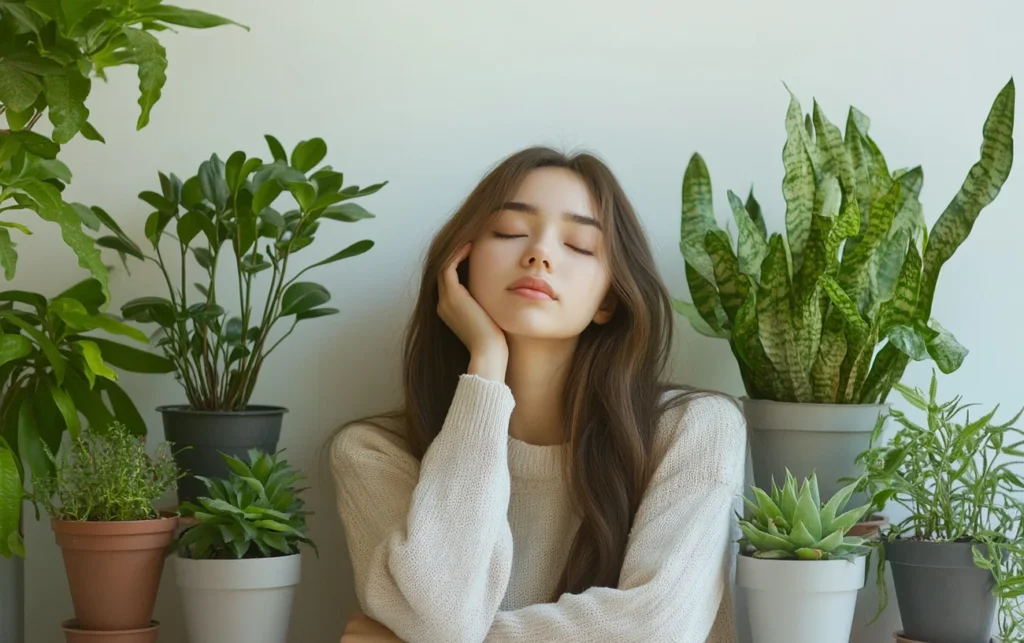It turns out that even ordinary flowers can doom their owners to loneliness. Generations of experience have shown that certain plants are believed to carry mystical properties, not always positive. To live in harmony with nature, attract good luck, and create a positive energy in your home, it’s important to know which plants to keep and which to avoid.
1. Orchid
The orchid is one of the oldest and most controversial flowers. While it is a symbol of beauty, its natural way of growing—feeding off trees—has led to it being labeled as a “vampire flower,” thought to drain the energy of those around it. If you decide to keep an orchid, watch for changes in your home. Does the atmosphere remain harmonious, or do tensions and drained energy begin to surface?
2. Violet (Saintpaulia)
Violets are believed to harmonize the home, bringing peace and comfort. However, there’s another belief that violets cause single women to remain unmarried, and for those in relationships, it can create tension if the plant is not well cared for.
3. Ivy
Ivy grows by wrapping itself around its environment, which symbolically represents suffocation and entrapment. People who keep ivy may feel depressed, drained, and isolated, which is why it’s better to choose a more positive plant for your home.
4. Sansevieria (Mother-in-law’s Tongue)
This well-known plant is believed to spark conflicts between spouses, similar to a meddling mother-in-law with her sharp tongue. Some also believe that if Sansevieria blooms in winter, it foretells bad luck.
5. Calla Lilies
Calla lilies are associated with sorrow and negative events. They are not typically given as gifts, and if you receive them, it’s considered a bad omen.
6. Ficus
Ficus is said to predict loneliness for its owner. It is believed that Ficus “drives away” potential partners and causes arguments in relationships, eventually leading to breakups.
7. Plants That Repel Men
Some plants are thought to drive away men from single women and even married women. These “husband-repellers” include:
- Scindapsus: This plant grows quickly and is easy to care for, but it is believed to keep women single.
- Dieffenbachia: Known for its negative energy, Dieffenbachia is believed to drain the energy of household members and repel male energy from the home.
- Wax Ivy (Hoya): This plant is thought to emit toxic fumes that cause headaches and reduce libido in men, eventually driving them away from the home.
Plants That Protect Personal Happiness
1. Aloe
Aloe is considered a protective plant, both medically and spiritually. It is believed to ward off evil spirits and bring protection to the home. It’s best to place an Aloe plant in areas that need the most protection, such as the entryway or living room.
2. Geranium
Geraniums are said to carry the power of Venus, making them effective in matters of love. They are believed to attract love, protect against envy, and help with fertility. Pink Geraniums are recommended for single women, while married women should keep white Geraniums.
3. Cyclamen
This plant symbolizes fertility, love, and passion, making it ideal for married couples to keep the fire alive in their relationship. It’s best placed in the bedroom to protect and nurture the relationship.
4. Christmas Cactus (Schlumbergera)
The Christmas Cactus is believed to absorb negative energy from the home, protecting the household’s peace and well-being. It’s known for its strong protective qualities.
5. Spathiphyllum
Commonly known as “women’s happiness,” this plant is believed to bring joy and love to women, according to legend. It’s said to be blessed by the goddess Astarte to bestow happiness on those who keep it.
6. Anthurium
Anthurium is the male counterpart to Spathiphyllum, believed to bring happiness and love to men. It is said that placing these two plants together in the home will bring the ultimate marital bliss.
These beliefs, while steeped in tradition and folklore, offer insight into the cultural significance of plants in our lives. Whether you choose to heed these superstitions or not, being mindful of the energy in your home can contribute to a more harmonious living environment.

